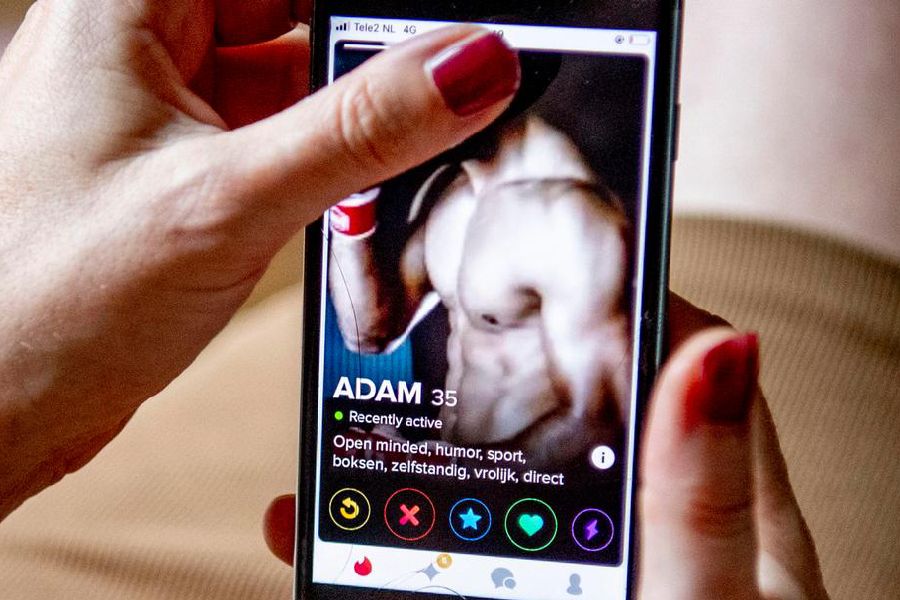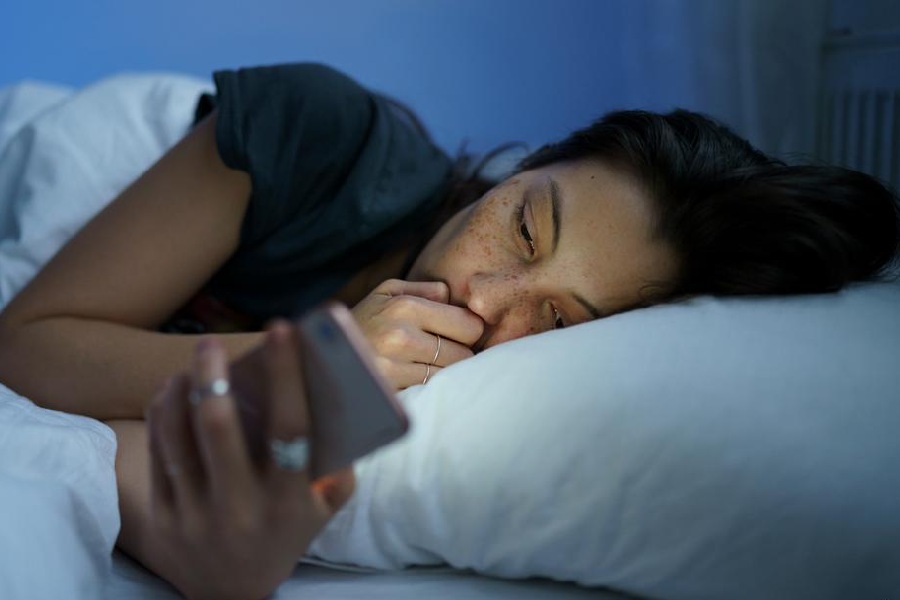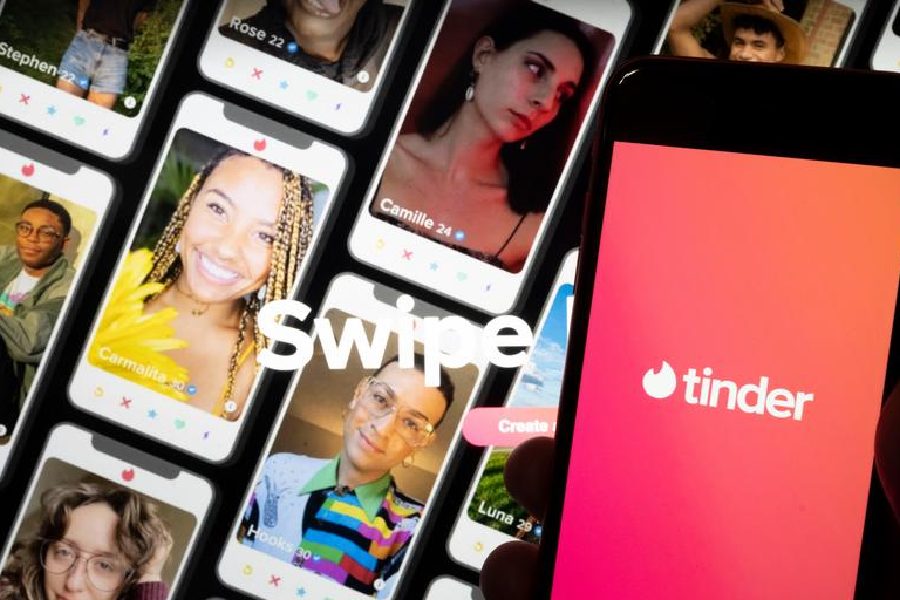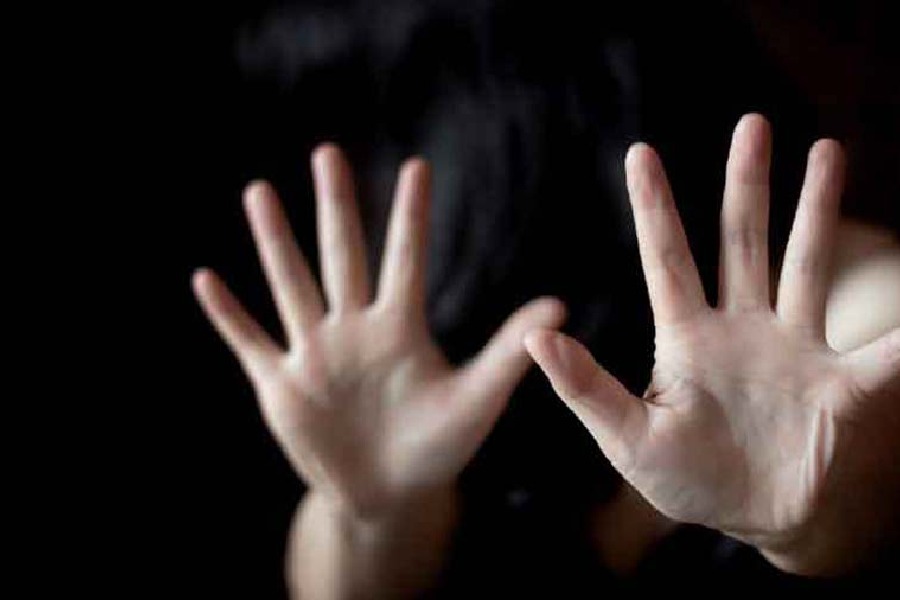Debutante balls, family matchmaking, newspaper ads, blind dates: People have always found different ways of giving happiness a helping hand when searching for a partner. Now, though, the Internet, and the smartphone in particular, has revolutionized how we seek out sexual and romantic contacts..
Pia Kabitzsch is a Berlin-based psychologist and dating expert. She says that online dating is taken for granted in many countries, especially among the younger generation.
"A 2023 survey showed that 77% of 16- to 29-year-olds and 66% of 30- to 49-year-olds have already dated online," she says. "And most couples nowadays do actually meet online."
Like the 32-year-old Brazilian Giovana Idalgo Zanforlin and her partner Juliana. "Online dating is often superficial, but it's also pretty convenient," says Idalgo Zanforlin. "You don't have to go somewhere to meet someone. And you know right away what the other person's sexual orientation is."

Giovana Idalgo Zanforlin and her partner Juliana met on Tinder Deutsche Welle
How do dating apps work?
On popular providers like Tinder, Bumble or Grindr, online dating usually works like this. Users create a profile with photos and information about themselves and what they seek. An algorithm then introduces them to potential matches based on various criteria, including where they live, their preferences and interests.
The global market leader Tinder became famous for this type of online dating in 2012. The profiles the app sends to its users can be swiped left (if you don't like the person) or right (if you like the person). If someone also swipes right on you, you have a match and can start chatting with each other.
People browse a prearranged selection of other users and usually decide within a few seconds whether or not they find them attractive. However, it's often the case that a match doesn't lead to a conversation — and if it does, it may fizzle out once you've exchanged a few banalities.
That doesn't sound particularly profound or engaging. And a few years ago, many were outraged when it became known that Tinder was internally applying a so-called "Elo score" to its users. This score evaluated how well people responded to a particular user, which could be described as their attractiveness, and was supposed to "improve" the algorithm.

Even if you've both "swiped right" and been matched, there's no guarantee a conversation will ensue Deutsche Welle
'You have to sell yourself, like in a shop'
Alfonso Rosales Garcia is a physical therapist who moved from Spain to Berlin two years ago. He uses the dating app Hinge, and he, too, criticizes the superficiality of the apps.
"It's weird," he says. "You feel like you have to sell yourself, like in a shop."
The 29-year-old also highlights a paradox of dating apps: if they work too well, they will quickly lose their users.
"They want to do business with the people's dating life," he says. "If not, they would not offer [for] you to pay to get more likes or visibility."
Many users are similarly frustrated by certain aspects of online dating. The psychologist Pia Kabitzsch encounters the same issues. However, the author of the best-selling book "It's a Date!" thinks putting all the blame on the apps is wrong.
"Users have control of how they use the apps and what they make of new acquaintances," she says. "This is often the source of people's frustration. For example, users click through profiles quickly, then complain that the app is superficial. They ghost others, then see dating apps as too detached."
What are the negatives of dating apps?
Dating apps have other downsides, as well. They are potentially addictive, for example, in the same way as other social networks such as Instagram or TikTok. With seemingly endless possibilities, some users will spend hours swiping on dating apps and cannot stop. Each new match, or even just the prospect of one, provides the brain with a dopamine kick.

Like social media, dating apps have the potential to be addictive, and can exacerbate psychological issues Deutsche Welle
Faced with too many possibilities, the user can also become tired and overwhelmed. In psychology, this is called the "choice overload effect." In the same way that people in a big city are sometimes barely aware or appreciative of each other in everyday life, on dating apps, they may find they have less attention and patience to give to the next contact.
Several studies also suggest that dating apps can be stressful, dissatisfying, and even exacerbate psychological problems. For example, Elias Aboujaoude, a professor of psychiatry and behavioral sciences at Stanford University, studied the satisfaction levels of Tinder users based on testimonies from more than 1,300 respondents.
In July, the Stanford University medical blog quoted the study, saying the results showed that online dating was an ineffective coping mechanism for those facing mental health challenges. As someone who has studied problematic Internet use for 15 years, Aboujaoude drew parallels with social media use, which, he said, can exacerbate conditions like depression, anxiety and low self-esteem.
Some dating app providers have already implemented measures to try to counteract negative consequences like these. On OKCupid, for example, users must fill out a fairly detailed questionnaire so the app can consider more personality traits. And Once only offers one suggestion per day, rather than hours of swiping.
How users can better use dating apps
Users can take their own steps to avoid frustration and unhealthy user behavior. Kabitzsch advises them to make a point of being aware of what they want and are looking for. They should also take time to look at other profiles quietly and calmly and not forget that there is a person with feelings behind every profile.
If you are ghosted, which refers to someone suddenly breaking off contact with no explanation or receive only a few likes, it helps, she says, to be aware that: "What is being 'rejected' is not you as a person, only the tiny portion you have revealed about yourself online."
Kabitzsch is also familiar with the addictive aspect of dating apps. "I've even missed my stop occasionally because I was so engrossed in the 'Tinder game,'" she says. The dating expert, therefore, advises taking regular breaks from Tinder and co. — at the very latest, if online dating starts to feel like a burden.
The many doors online dating opens for us can be overwhelming, in both positive and negative ways. A conscious approach to the apps can help determine whether you are swiping toward coupledom or wasting your time.












